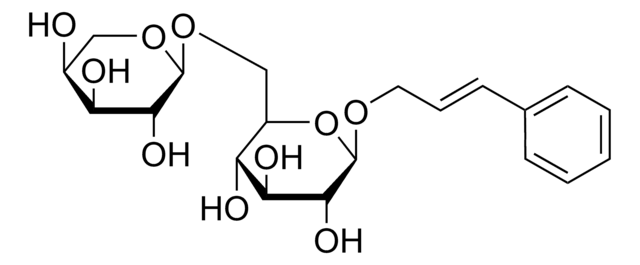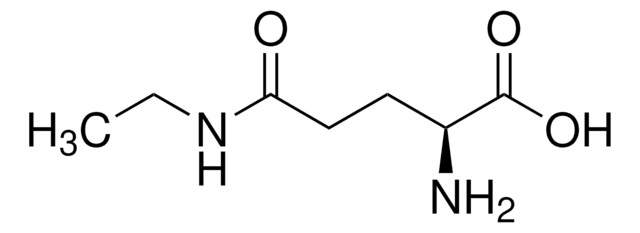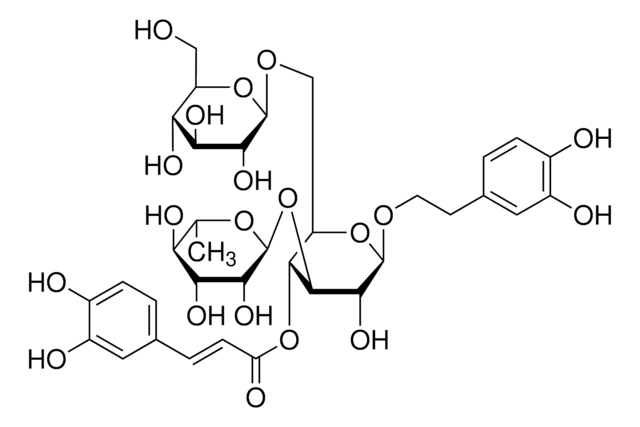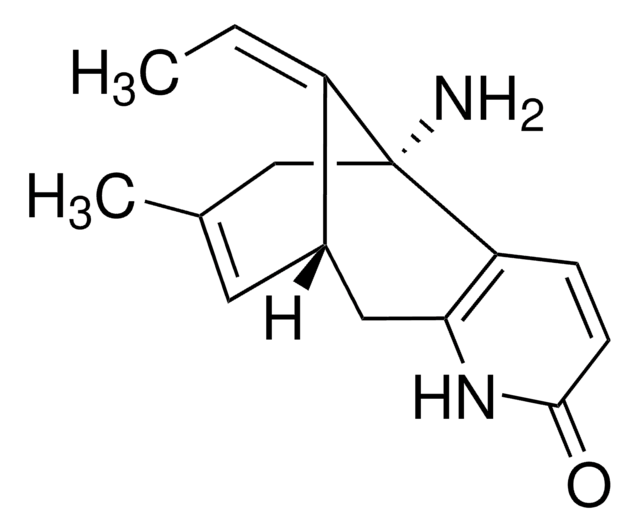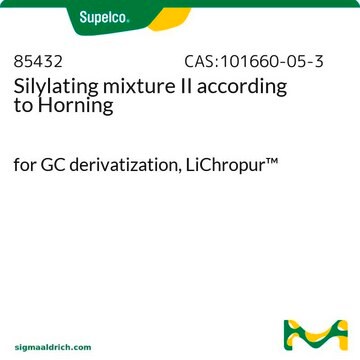43866
Salidroside
analytical standard
Synonyme(s) :
2-(4-Hydroxyphenyl)ethyl β−D-glucopyranoside, p-Hydroxyphenethyl glucopyranoside, Rhodioloside, Rhodosin, Tyrosol a-(β-D-glucopyranoside)
About This Item
Produits recommandés
Qualité
analytical standard
Niveau de qualité
Pureté
≥98.0% (HPLC)
Activité optique
[α]/D -29±2°, c = 0.5 in methanol
Technique(s)
HPLC: suitable
gas chromatography (GC): suitable
Application(s)
food and beverages
Format
neat
Chaîne SMILES
OC[C@H]1O[C@@H](OCCc2ccc(O)cc2)[C@H](O)[C@@H](O)[C@@H]1O
InChI
1S/C14H20O7/c15-7-10-11(17)12(18)13(19)14(21-10)20-6-5-8-1-3-9(16)4-2-8/h1-4,10-19H,5-7H2/t10-,11-,12+,13-,14-/m1/s1
Clé InChI
ILRCGYURZSFMEG-RKQHYHRCSA-N
Vous recherchez des produits similaires ? Visite Guide de comparaison des produits
Catégories apparentées
Description générale
Application
Actions biochimiques/physiologiques
Conditionnement
Mention d'avertissement
Warning
Mentions de danger
Conseils de prudence
Classification des risques
Eye Irrit. 2
Code de la classe de stockage
11 - Combustible Solids
Classe de danger pour l'eau (WGK)
WGK 3
Point d'éclair (°F)
Not applicable
Point d'éclair (°C)
Not applicable
Faites votre choix parmi les versions les plus récentes :
Déjà en possession de ce produit ?
Retrouvez la documentation relative aux produits que vous avez récemment achetés dans la Bibliothèque de documents.
Les clients ont également consulté
Notre équipe de scientifiques dispose d'une expérience dans tous les secteurs de la recherche, notamment en sciences de la vie, science des matériaux, synthèse chimique, chromatographie, analyse et dans de nombreux autres domaines..
Contacter notre Service technique